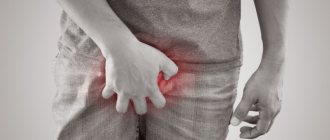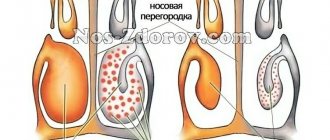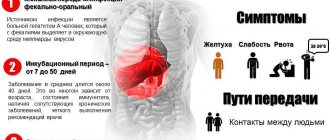Acute toothache occurs as a result of common dental diseases: caries, pulpitis, periodontitis.
With each disease, the pain is of a different nature, which can be aching or acute. Because of this unpleasant sensation, general well-being can significantly deteriorate, which negatively affects a person’s performance and sleep patterns.
Typically, pain occurs as a result of nerve damage, can spread into the tooth or tissue, and is unexpected and very pronounced.
What can be done in case of severe toothache, how to calm an unruly tooth? There are several methods that will help eliminate the syndrome; it is necessary to consider them all and, if necessary, perform them in combination.
At the first hint of acute toothache, it is necessary to direct all efforts to alleviate suffering and reduce pain, otherwise the consequences may not be the most pleasant.
Types of toothache
All information presented is for informational purposes only, since only a specialist can establish an accurate diagnosis and prescribe treatment through a visual examination. Dental medications do not have a significant effect on the functioning of the body, have virtually no contraindications and do not cause adaptability (addiction). The information presented on our website is intended to provide information about medications. Selection and appointment should be carried out by a specialist. Self-medication can be harmful to your health. In our directory you will find all the most common diseases of the oral cavity - caries, pulpitis, gumboil, stomatitis, periodontal disease, fistula, periodontitis, etc. As well as medications: analgesics, antimicrobial agents, antipyretic medications, local anesthetics, astringent gels, means for fixing dentures .
Oh, this pain!
There is probably no person on earth who is not affected by the problem of toothache. She accompanies us from infancy to adulthood. Erupting milk teeth, inflammatory processes, injuries, compression of nerve endings, pus - all this causes pain. Robert Burns dedicated a poem to toothache, ending it like this: “Execute the enemies of my country with toothache!”
It is quite natural that there are different types of toothache. To a large extent, it depends on the causes of the pain syndrome. Doctors at the City Dental Center dental clinic advise you to know the characteristics of a particular type of toothache, as well as the reasons that cause it.
Causes and types
If you are worried about toothache, to combat it you need to know the cause of this phenomenon. Among the common reasons:
- Damaged enamel;
- Mechanical damage to teeth;
- Caries;
- Pulpitis (acute);
- Formation of a cyst in the gum or tooth;
- Inflammatory process in the periosteum.
It is the type of toothache that often suggests the cause of its occurrence. For example, sharp pain that occurs while eating may indicate the development of caries or sensitive enamel. This is a good reason to visit a doctor to eliminate the irritant, if it is a deepening of a tooth affected by caries.
Acute pulpitis causes sharp, lightning-fast pain that comes in waves.
Mild pain, also coming in waves, starting and disappearing for no apparent reason, signals pleural pulpitis.
Acute purulent pulpitis causes cutting, shooting pain. As a rule, it occurs after interaction with cold.
Let's take a closer look at the causes and symptoms of this or that type of toothache.
Teething
We've all encountered this. During the period of teething, children often have a fever, a runny nose, and possibly abnormal bowel movements.
Adults often face the problem of teething wisdom teeth or third molars. As a result, swelling occurs and a bacterial infection develops.
Sweet food particles
When particles of sweet food get on the tooth, they cause short-term pain, which can be eliminated by rinsing or brushing the teeth.
In fact, such pain is explained by tooth erosion, initial or moderate caries.
Brushing teeth and cold
If pain occurs during brushing your teeth or exposure to cold air or water, this may indicate thinning of the enamel.
The causes of such thinning may be hyperesthesia, pathological abrasion of dental tissues, a wedge-shaped defect, erosion, and exposure of the necks of the teeth.
Long-term pain
Pain that lasts several minutes can be a signal that the dental nerve is inflamed (pulpitis). This pain usually occurs when a tooth gets hot or cold. In the first case there is pus in the tissues, in the second there is serous inflammation.
It hurts to touch
Fullness, feeling of an “overgrown” tooth, pain. Occurring when touched are symptoms of an inflammatory process in the tissues at the apex of the root, i.e. periodontitis. This disease, which lasts a considerable time without any symptoms, reveals itself during hypothermia, stress, and viral diseases.
Often with periodontitis, a cyst or granuloma forms.
Half of my jaw hurts
Significantly intensifying at night, such aching pain may indicate the development of acute diffuse pulpitis or exacerbation of chronic pulpitis.
Pain after nerve removal when biting
Obviously, the cause of the pain was insufficiently cleaned channels. In this case, the pain appears immediately and takes on a pulsating character. It gets worse with hot water. Sometimes blood clots appear at the apex of the root; the tooth reacts to food entering it or teeth closing.
Other causes of pain
Often gums hurt due to diseases of the circulatory system:
- leukemia;
- anemia;
- benign neutropenia.
Gum tissue may hurt due to acute intoxication of the body caused by exposure to mercury or lead. This symptom, caused by a violation of calcium metabolism, occurs in diseases of the gastrointestinal tract (ulcers, gastritis). Possible reasons explaining why gums hurt include:
- Dysfunction of the endocrine system caused by systemic diseases (endemic goiter, diabetes mellitus). The appearance of pain is explained by an increase in the concentration of a number of hormones or damage to the vascular wall.
- Long-term use of medications. Contraceptives, immunosuppressants and some other medications damage the liver, which leads to intoxication of the body.
- Exposure to radiation. This factor provokes an inflammatory process in the oral cavity, which is why the gums begin to ache.
In addition, discomfort in the area under consideration occurs against the background of the development of infections. Basically, gum tissue hurts due to the influence of bacterial microflora, but in some cases viral diseases lead to similar phenomena.
Types of toothache - what happens and its causes
Symptoms depend on the cause of pain: injury, the appearance of pus, tissue inflammation, and also as a result of compression of the nerve ending .
Photo 1. The main causes of toothache are most often accompanied by caries, periodontitis and pulpitis, but painful sensations can also be caused by other diseases.
Short term
Occurs when sweet food . Another reason is the initial and middle stages of caries or erosion .
Getting rid of this manifestation is very simple - just rinse your mouth with water or brush your teeth .
Long-term
Occurs as a result of contact with cold drinks or food . Temperature sensitivity contributes to its appearance . If the symptoms do not subside after a few minutes, then the patient has nerve inflammation .
The nature of this phenomenon is influenced by the factor that caused this reaction . If it occurs due to cold food, serious inflammation . When a tooth reacts in this way to hot food, suppuration appears .
Passing
The causes of occurrence are exposure to high or low temperatures .
Passing pain from caries often occurs in the case of deep or medium caries , since the nerve is located near the bottom of the carious cavity , susceptibility increases.
This symptomatology cannot be ignored , because it can lead to inflammation of the nerve .
Another reason why such a symptom that occurs as a result of caries should not be triggered is pulpitis . This is an inflammation of the dental pulp. The cause of the disease is microbes and toxins penetrating the pulp from the carious cavity.
Passing pain can result from thinning of tooth enamel , which occurs as follows: first and shape change , and then cracks appear . When food gets into them, a person feels pain.
Bursting
Occurs when touching a diseased tooth. A similar symptom often accompanies a chronic form of periodontitis , which lasts for a long time without noticeable external symptoms. Then painful sensations , accompanied by a general weakening of the body as a result of a cold or stress.
Attention! With periodontitis, a cyst often forms . X-ray diagnostics of the jaw will allow it to be detected . If left untreated, chronic periodontitis can lead to complications such as abscess and periostitis .
Aching
Occurs unexpectedly . It often goes into the temples and ears. It is especially painful to endure such symptoms .
Reasons for appearance:
- The effects of temperature or chemicals on the dental system. Another factor is inflammation of the periodontal tissue .
- Exposure to irritants is characteristic of caries and pulpitis. The spontaneous type indicates an inflammatory process in the pulp . If the pain goes away after removing the irritant, its cause is abrasion of the enamel .
Aching, painful sensations may occur due to the onset of caries . However, they are not permanent and appear when sour or hot food . Painful sensations disappear if you rinse your mouth thoroughly.
Sharp
Sharp or acute pain is characterized by an unexpected appearance and radiates to the temples or ear. It intensifies under the influence of heat .
As a result of deep caries , accompanied by penetration of infection into the tissue, acute painful sensations also occur. They also appear as a result of cracks or improper filling . Another reason is dentin in the area of the tooth neck .
Here are a few more factors:
With periodontitis, intense pain appears as a result of the involvement in the inflammatory process of not only the tooth , but also the bone tissue located near the apex of the root.
Important! Periodontitis is accompanied by decay of nerve endings and damage to ligamentous tissues . As the tooth becomes mobile, it is difficult for it to stay in the jaw. This is what causes acute pain when touched. It also intensifies when tapped .
Wandering
This type of pain is otherwise called walking pain .
The most popular folk remedies for toothache
- Clove oil
Why cloves?
Cloves contain a natural anesthetic, eugenol, which numbs anything it touches and has a very pungent odor.
How to relieve toothache using clove oil?
Place 1-2 drops of oil on a cotton ball and apply to the throbbing tooth.
It helps?
Clove oil for toothache causes numbness in the painful area and pain relief for only a few minutes.
It is safe?
Not really. Clove oil can aggravate the situation and even increase the pain when it comes into contact with other sensitive areas of the mouth, especially the tongue.
- Mint tea bags
Why bagged mint tea?
Used tea bags are often used to soothe sensitive skin. Peppermint has similar properties to cloves: it causes numbness and relief.
How to relieve toothache with mint tea?
Peppermint tea can be used in two ways. First, apply the cooled sachet to the pulsating area. Secondly, cool the bag in the refrigerator for a few minutes and then apply it to the painful tooth. Keep for 20 minutes.
It works?
Not for long. The unpleasant sensation subsides for just a few minutes after removing the tea bag, and then returns again.
It is safe?
Yes. This traditional medicine for toothache will not harm your health in any way.
- Water with salt
Why water with salt?
Salt water is often used to cleanse infected skin areas and cavities, removing excess debris and providing temporary relief.
How to use saline solution?
Take a small sip of the saline solution and rinse your mouth with it for 30 seconds. Repeat several times.
It helps?
The cleansing effect of salt gets rid of harmful bacteria and accumulations of pus, bringing relief, but not for long.
It is safe?
Yes. Water with salt is absolutely safe for toothache and brings temporary relief.
- Hydrogen peroxide rinse
Why hydrogen peroxide?
A mixture of water and hydrogen peroxide not only cleanses, but also kills pathogenic bacteria.
How to use?
Mix equal parts water and 3% hydrogen peroxide, take a sip and rinse your mouth for 30 seconds. Repeat 2-3 times.
Does this remedy help?
Gargling with hydrogen peroxide temporarily dulls the pain and prevents the development of gingivitis, which can also cause pain.
It is safe?
No. The benefits of such rinses are less than the harm. If you swallow the solution, problems with the stomach or intestines may occur, and if there is more hydrogen peroxide in the solution than water, then you can burn your mouth.
- Cotton ball with alcohol
Why alcohol?
Alcohol, like other types of alcoholic drinks, causes numbness.
How to use it?
Place some rubbing alcohol on a cotton ball and apply it to your tooth.
It helps?
Alcohol dulls the pain for only a few minutes, and as soon as it evaporates the symptoms will return.
It is safe?
No, especially for children. Although many people think that such a small amount of alcohol will not harm, for children even this drop can cause vomiting or seizures.
- Garlic
Why garlic?
Garlic is similar in action to an antibiotic and inhibits the growth of microorganisms that attack teeth.
How to use?
There are two ways to use garlic for toothache. The first method: mash a clove of garlic with a pinch of salt and apply it to the sore tooth. Method two: chew 1-2 cloves of garlic in your mouth 2-3 times a day.
It helps?
Garlic is temporarily soothing, but its effectiveness depends on the cause of the pain. For example, if the pain is caused by temporomandibular joint dysfunction, then garlic will not help at all.
Is garlic safe?
Yes. If you are not bothered by bad breath, then there is no reason to worry at all.
- Vanilla extract
Why vanilla extract?
Alcohol is one of the active ingredients in vanilla extract, and as mentioned above, alcohol causes numbness. The aroma of vanilla is also believed to have a relaxing and soothing effect, which helps relieve pain.
How to use?
There are two ways to use vanilla extract. Apply a little extract to your finger and rub into the offending tooth and gum underneath. Or soak a cotton swab in vanilla extract and apply to the desired area. Repeat the procedure 2-3 times a day.
It helps?
Vanilla extract provides temporary pain relief and requires numerous repetitions of the procedure.
Is garlic safe?
No. Although the amount of alcohol in vanilla extract is minimal, it is still alcohol and is not safe for children.
Toothache - types, causes, consequences
Man is designed in such a way that he can withstand almost any pain. Any, except dental. At the same time, most people are very frivolous about such a procedure as dental treatment. Meanwhile, timely contact with a specialist will help to avoid many problems that can result from any oral disease. And, believe me, aesthetic problems compared to the likelihood of infection of the body are trifles. Due to delays in seeking help from a dentist, many people later regret it. After all, such a seemingly insignificant disease can cause infection to penetrate into the bone tissue, which will lead to its destruction and complete loss of the tooth. Unfortunately, a person understands that he needs to turn to a specialist for help only when he begins to suffer from unbearable toothache. At the same time, it has long been noticed that toothache torments people especially severely at night. Toothache is something that can deprive a person of sleep, peace and even willpower. The pain can be sharp, aching and unbearable.
Why is it important to have timely dental treatment?
Aching pain begins to bother a person only when the tooth is destroyed to such an extent that the bottom of the carious cavity is in close proximity to the pulp. This means that food debris gets into the cavity formed by caries, which is the main cause of aching pain. And if you postpone dental treatment, the destructive process will continue and, as a result, will lead to inflammation of the pulp, which in professional language is called pulpitis. With pulpitis, the nature of the pain changes. Now the pain turns from aching to sharp. Such pain covers literally every cell of the human body, depriving a person of peace. With pulpitis, anything can hurt - ears, eyes, back of the head, temple, and maybe everything in combination. In order to somehow calm such pain until you can seek help from a dentist, experts recommend applying cold to the sore tooth. It can be simple cold water. But, in no case should you warm up a tooth during pulpitis, because pulpitis is a purulent inflammation, and when heated, suppuration can spread far beyond the diseased tooth. In this case, it will be very difficult to provide timely assistance to the person. That is why, without exception, experts urge people to carefully monitor their oral health and promptly carry out dental treatment.
Why do my teeth hurt?
The main causes of toothache include:
- Caries.
The initial stage is characterized by the destruction of the upper tooth tissues. The pain occurs periodically or one-time - the tooth reacts to pressure, cold and hot. - Deep caries.
The middle tissues of the tooth are affected, the pain becomes more prolonged, aching or throbbing. - Pulpitis.
The result of untreated caries. A nerve has been hit. The pain is severe and incessant. - Periodontitis.
Inflammation of the tissues around the roots of the teeth. It occurs as a consequence of pulpitis or after erroneous medical procedures. The pain is acute, intense. - Residues of food stuck
between teeth, even healthy ones. First there is a feeling of discomfort, then a pressing pain that can cover the entire jaw. Use dental floss or metal (dental) tape.
Why does toothache bother you most at night?
A very large number of people are interested in the question of why toothache begins to bother me most at night? There may be several reasons for this. Firstly, during the day the human brain is completely occupied with processing everyday tasks and therefore the alarming signals that the brain receives from a bad tooth are only partially perceived by it. But at night, when everyday worries are left behind, attention is completely and completely focused on pain. The second reason that toothache intensifies at night is that when a person is in a horizontal position (and we sleep in this position), the blood flow to the jaw increases several times. Accordingly, the vessels of the inflamed pulp fill with much more blood, causing an increase in pressure. And as a consequence of all this, the sensitivity of nerve endings increases.
Remedies for relieving aching pain in teeth
There are recipes that help temporarily relieve aching toothache in cases where it is not possible to see a dentist immediately (for example, at night or away from populated areas):
- a cold compress applied directly to the sore tooth;
- rinsing your mouth with a solution of soda (a teaspoon in two glasses of water);
- a cotton swab moistened with calendula tincture and applied to the affected area;
- rinsing your mouth with a decoction of sage (a tablespoon of chopped leaves in a glass of boiling water, infused for an hour).
The aching pain appears suddenly, but getting rid of it is quite difficult. Usually it is localized in one tooth, but sometimes it can cover the entire jaw. Before dealing with symptoms, it is worth understanding its causes and in what cases it occurs.
Simple caries can be fatal
It may seem only at first glance that one small tooth cannot cause harm to a large organism. However, this is a huge misconception. Medical practice describes cases where simple caries caused death. Therefore, this disease cannot be joked about.
One conclusion can be drawn from all this - at the first sign of dental disease, you must immediately contact a dentist; delay in this case can be very expensive.
Many people prefer not to see a doctor, but to endure toothache until the last moment, because they are simply afraid of treatment. Most people still have memories of how teeth were treated decades ago. Indeed, our mothers and fathers, as well as some of us, were not lucky enough to go to dental clinics at a time when there was a shortage of everything in the country, including medications. Back then, dental treatment was indeed a rather painful procedure.
Modern methods of dental treatment
However, modern methods of dental treatment are fundamentally different from those methods that doctors used 15 years ago. Nowadays dental treatment is carried out using the highest quality materials, anesthetics and modern dental technology.
Methods for reducing toothache
Of course, there are a number of methods for reducing toothache that you can use at home. But it is recommended to use them only if an acute toothache has overtaken a person at a time when it is not possible to go to a dental clinic. The most effective of them is rinsing. If toothache takes you by surprise, and it is impossible to seek help, you need to take a glass of warm water and rinse your mouth thoroughly, since the most common cause of toothache is clogging of the carious cavity with food debris. After this, if you have special anesthetic drops on hand, you can moisten a small cotton ball with them and use tweezers to place it into the tooth cavity. This will help relieve acute pain for a while.
But even if the toothache disappears after these procedures and does not bother you for some time, you should under no circumstances postpone dental treatment. Firstly, the pain may return very soon, and simple rinsing will no longer be effective, and secondly, the pain indicates an inflammatory process and disease. Only a qualified specialist can relieve a person of toothache once and for all, having first found out the cause of its occurrence.
Why do my teeth ache?
Ancient Chinese doctors argued that there is a relationship between the condition of teeth and the internal organs of a person. For the most part, doctors are indifferent to this hypothesis: they do not refute it, but they do not take it into account when treating patients. But eastern healers and adherents of eastern teachings support her. In their opinion, there is a direct connection between each tooth and a group of internal organs. Aching pain in a particular tooth is a signal of disorder in a certain organ.
A number of provisions of Chinese diagnostics have already been confirmed by the results of scientific research. It is impossible to dispute them.
With influenza, heart attack and hypertensive crisis, patients experience aching pain in their teeth. Doctors call it irradiating or reflected. It is transmitted from the source of infection to a remote area.
Aching pain in the jaw and lower teeth is a characteristic symptom of developing myocardial infarction. It is no less eloquent than pain behind the sternum or in the left arm. Ignoring this symptom can cost a person his life.
In the case of some diseases, teeth can not only ache, but also become painful and decay.
Chinese doctors have compiled a map of the correspondence of internal organs and
human teeth, its data is taken into account when diagnosing patients.
The upper and lower incisors (1st and 2nd teeth) are connected to the ears, kidneys and bladder. Aching pain in these teeth occurs with chronic diseases: otitis media, pyelonephritis, cystitis.
The canines are interconnected with the liver and gall bladder. If they whine, react to hot and cold, there is a high probability that the person has cholecystitis or hepatitis.
Premolars or small molars (4th and 5th) reflect the condition of the lungs and large intestine. Problems with them arise when a person suffers from colitis, allergies, pneumonia. If two 4th teeth (above and bottom) ache or hurt at the same time, it is worth checking the joints - arthritis is suspected.
Problems with the stomach, spleen and pancreas will be indicated by molars (6th and 7th). They can warn about the development of chronic gastritis, pancreatitis, peptic ulcers, and anemia.
The sixth upper tooth will indicate tonsillitis, diseases of the larynx and pharynx; lower - for problems with arteries. The seventh bottom ones will talk about problems with veins and lungs.
Wisdom teeth are connected to the heart and small intestine. Problems with them warn of the development of coronary heart disease and chronic enteritis.
If your teeth ache, don't be alarmed. Not every unpleasant sensation in the jaws is evidence of serious problems in the body. They may be caused by dental diseases. To understand the situation, visit a dentist and therapist, and undergo a medical examination.
Did you like the article? Click on the social media button. Tell your friends about it.
Share with friends









